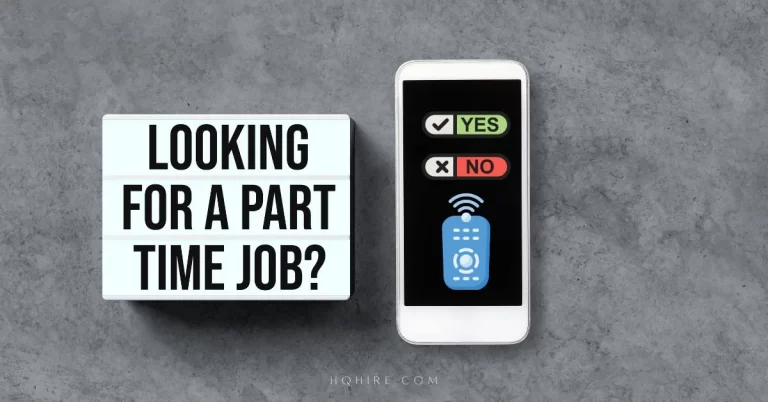The grass is always greener on the other side, and some employees may hate their job and feel like quitting their job every day.
It is always hard to decide if you should quit your job for a better job opportunity elsewhere.
You may be working in a toxic work environment, or your workplace is too far, and wants to quit your job before another lined up.
But before you quit your job without a plan.
Here are a few things you should do to quit your job and get a better one.
How To Quit Your Job And Get A Better One
Quitting a job to get a better one is hard because candidates might not be entirely qualified for the positions they’ve been applying for.
Employers hire candidates based on their compatibility to the required skills, education, and job experience necessary for the job role.
So, if you are looking to quit your job to get a better one.
Here are the best-proven tips that can help you get a better job offer when you’ve decided to change your job.
1. Identify your career path of choice
Identify what you really want in your career and figure out what type of work do you want to become your lifelong career.
Quitting your job is the best time to make a career change.
Companies who are hiring often look for transferable skills, so you don’t always need experience in a specific job in order to get the job.
Once you’ve identified your career path of choice, come up with a list of transferable skills that you may want to develop, and work on developing these skills to get into your career path of choice.
Best Transferable Skill Examples For Job Search
- Problem Solving. A skill that doesn’t only help you to identify a problem, but also to provide a solution to the problem.
- Critical Thinking. Evaluation and interpretation of information to make a sound judgment for the next course of action.
- Analytical Reasoning. Solution-based problem-solving skills that break a large problem into smaller digestible pieces that can be solved systematically.
- Teamwork. Ability to work together with others towards a common goal.
- Leadership. Ability to lead others to work towards a common goal.
- Communication. Transfer of verbal information clear and concise manner where you will be able to share your ideas with another individual.
- Writing. Ability to convey written messages clearly and concisely to another individual without visual cues.
- Listening. A good listener is the ability to perform active listening to understand the information conveyed by another individual.
- Attention to detail. A skill that is highly demanded by most employers is to identify fine details so that no matter how small or insignificant is the issue, nothing will go wrong.
- Computer skills. Ability to work well with computer software commonly used by companies. Examples of software are; Microsoft Word, PowerPoint, Excel, and Outlook. Having the knowledge of at least basic computer skills is essential if you are looking for remote working or hybrid working opportunities.
2. Finding a good company to work for
Identify companies that are known to take care of their employees and have the reputation to be the best company to work for.
When performing company research, we start by knowing the company’s name, the product and service provided, and the number of employees.
Come up with a list of target companies you will like to work for and include information such as:
- Type of company. Understanding the type of company will allow you to know what the business is about and if you are suitable for the industry.
- Type of job. Understanding the type of job will give you an idea if you have the transferable skills required to perform the job.
- Company size and revenue. The size and revenue of the company will let you have an understanding on your possible career growth potential in the company.
Once you’ve shortlisted the companies you want to work for, you may want to check if the company culture suit you. You may also want to understand what are the possible challenges you will be facing if you are hired as an employee in the company.
Go into the company’s social media profile and get a glimpse of what the company represents.
- Check the company’s Facebook page to understand how the company wants the public to perceive it.
- Check the company’s LinkedIn page to understand how the company wants the public to view it as its professional image.
If you want to understand what are the possible changes you may face after you are hired by the company, simply read reviews of the company.
Company review sites are a great place to understand how the employee feels working in the company.
Best companies to work for in the world
| Rank | Company Name | Location | Industry |
|---|---|---|---|
| 1 | Cisco | California, United States | Information Technology |
| 2 | Salesforce | California, United States | Information Technology |
| 3 | Hilton | Virginia, United States | Hospitality |
| 4 | Wegmans Food Markets, Inc. | New York, United States | Retail |
| 5 | Rocket Companies | Michigan, United States | Financial Services & Insurance |
| 6 | UKG | Florida, United States | Information Technology |
| 7 | Texas Health Resources | Texas, United States | Health Care |
| 8 | Camden Property Trust | Texas, United States | Real Estate |
| 9 | Capital One Financial | Virginia, United States | Financial Services & Insurance |
| 10 | American Express | New York, United States | Financial Services & Insurance |
3. Setup Job Alert For New Job Vacancy
Sign up for job search websites and create free job alerts so that you will be notified when a new job post is available.
Set up job alert filters such as:
- Minimum salary
- Education level
- Job location
- Job type
- Job Industry
- Mode of work (Remote, onsite, or hybrid)
When you see a job that you are interested in, don’t wait to apply. The best time to apply a job is the same day you discover the potential job opportunity.
4. Don’t let imposter syndrome affect your job search
People who suffer from imposter syndrome feel that they somehow tricked their new employer into hiring them. These job seekers attribute all their success to luck rather than their ability to perform despite the person might have great success in their academic or professional career.
Imposter syndrome can affect your ability to find a better job, as it can sabotage your career and trap you in a role that is far below your full potential.
Simple ways to overcome your imposter syndrome
- Acknowledge your ability. Carry out an honest, deep, and realistic reflection of your strength and weaknesses.
- Avoid constant comparison with others. Quit comparing yourself with your peers and fixate on things that others have but you haven’t achieved. Stop comparing, you’ll just need to be slightly better than who you are yesterday.
- Know that skills can be transferable. Even if you are from a different industry, most skills are transferable and can be used across different industries.
Imposter syndrome won’t make you do better at your job, simply do the best you can and you will often be surprised at what you can actually achieve.
5. Improve your resume
A resume is the most important tool for getting a better job. Your resume detailing your skills, work experience, education, and most importantly, your accomplishments.
A great resume communicates this information to your potential employer in a clear, and concise manner to let them know the benefits you will be bringing to the job if you are hired.
The easiest way is to hire a professional resume writer to help you craft an attractive resume, not only this will help you pass the ATS system, but you may even get a higher salary compared to your peers.
Otherwise, here are some sections you’ll need.
Skills section in resume
The skill section needs to showcase the relevant skills that are required by the job. Separate these skills into different categories; soft skills and hard skills.
- Put only skills that will be relevant to the job you are applying for, don’t put skills that are irrelevant.
Work experience section in the resume
The work experience section needs to showcase that you can do the job. Listing from the most current date to the earliest, listing only the most relevant job experience to your potential job.
- Include your most current professional job title and position.
- Include the company name and location.
- Include when you work in that particular job.
Education section in resume
The education section needs to showcase your highest education level and all relevant certifications and diploma that are related to the job.
- Highest education obtained
- List of professional certifications
Accomplishments section in the resume
Accomplishments are often mentioned in much more detail in the cover letter, but in your resume, you will want to briefly mention the accomplishments you’ve achieved in your professional career.
Your past accomplishment will help you differentiate yourself from the rest of the candidates.
- Include accomplishments that are relevant to the job you are applying for.
- Mention your accomplishment in a short simple sentence.
6. Start Networking
Network with people you know in your industry or company which you’ll like to join. The exchange of information, advice, support on challenges, and experience allows you to gain new insight that otherwise you might not think of.
Networking is the exchange of information and ideas amount people with a common interest or profession, that can help you to in advancing your career and get better job opportunities.
Why networking is important in the job search?
80% of job seekers say their network has helped them find a job in one way or another. Employees often help to refer potential candidates for the job opening, where having a strong network can increase your chances to get referred to the job of your dreams.
Furthermore, a good network can give you advice on where to look for jobs, or help you review your resume tailored to the company you want to work for.
- Shorten time for the job hunt. Stronger networks tend to have more job offers which shorten your time to find a job for at least 1 to 3 months.
- Jobs are of higher quality. With more job offers. Jobseekers can choose to take up jobs that give a higher salary, or from companies that give better employee benefits.
- Employees stay at the job longer. Better company benefits and higher salaries will give the employee more reasons to stay with the company.
How to network online for a job?
Networking often starts with a single idea that is common between both individuals. It can be your profession, your interests, your ideals, or even the school you once studied.
LinkedIn and joining virtual social events are great ways for you to start getting to know new people.
LinkedIn is a great place for you to find out if there are any people you know at a given company. Simply go to the company’s page on LinkedIn, and it will show the list of connections you have who are working there.
Just talk to people and ask questions.
Connect with someone semi-professionally (Example)
“Hi, I am [Your Name], and I am amazed by your work on [Their Achievement].
I am passionate about [Industry/ Job Role] and I am looking to break into the industry.
If you’ll have three pieces of advice for me, what will it be?
Look forward to your reply!”
7. Don’t settle for less
If you want to quit your job and get a better one, you should not settle for less.
Know your worth before heading into an interview.
- Understand how much is the market rate for the job.
- Understand what are the common company benefits that come with that job role.
- Understand what you are looking for in your next job.
- Understand if it doesn’t seem like a good fit, you can respectfully decline the job offer.
- Understand you are interviewing them as much as they are interviewing you.
Even though you may want to quit your current job and find a new one, don’t settle for a job that is similar to what you currently have.
Because the reason why you want to quit your current job is to get a better one.
Why Do You Want To Find A Better Job?
The main reasons why people want to get a better job are higher pay, a better chance of promotion, better company benefits, better working hours, remote working opportunities, a healthier working environment, etc.
Getting a job that fulfills what you want in your career takes time.
Keeping yourself open to any job opportunity allows you to gain a better understanding of the changes in your industry, market trends, and pay rate.
You might be happy or contented with your current job, but there is always opportunities for you to learn something new.
Sometimes, being open to finding a better job is the best way for you to grow financially and professionally.
Quitting For A Better Job
Leaving a job is not easy, even when you have a better job, you should not burn any bridges when you quit your current job.
Here is how you should quit your job:
- Give yourself enough time to notify your boss that you are quitting your job.
- Stay calm when telling your boss you are leaving.
- Give a formal resignation letter to inform your boss of your departure.
- Let your boss know about your departure at the right time and day.
- Perform all your handovers professionally and diligently.
- Request an exit interview.
- Wrap up things professionally on your last day of work.
Learn In-Demand Skills To Get A Better Job
Equipping yourself with in-demand skills can help you in your career progression, increase your “hireability”, and open up potential opportunities that isn’t available to you before.
Everyone wants to get a better job, but only a few are willing to put in the work required to get a better job.
Today, you can earn a professional certificate or learn a new skill without going for traditional education at the University.
Online learning with platforms such as LinkedIn Learning has become a norm and knowing which is the best online learning platform to start your education is key to your success.
We’ve reviewed and handpicked some of the best online learning platforms you can explore and start your education.
Up Next… How much money do you need to be happy? Science has the answer!
Join over 11,000+ achievers who are committed to achieving their career goals!






